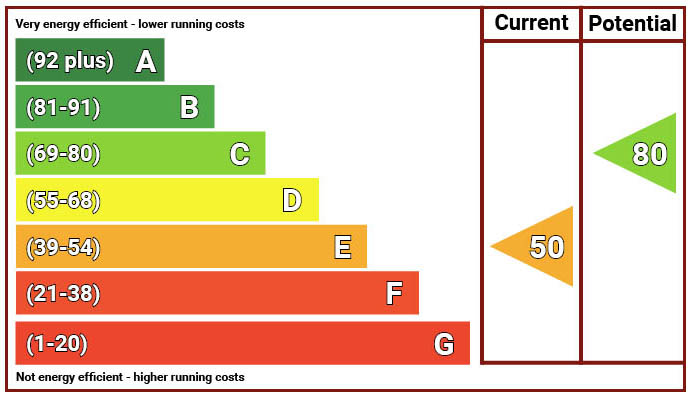Could your EPC rating be devaluing your home?
Posted 28 October 2015 by
Keith OsborneEnergy Performance Certificate (EPC) ratings really do affect house prices, with over a third (36%) of UK adults have revealed they would be prepared to spend up to £15,000 extra on a property that had a high rating (between A to C), according to new findings by online lightings retailer, LightBulbs Direct.
Though 40% of people admitted to “not knowing what it stands for”, when purchasing a new home, 55% of those surveyed said the EPC rating was an important factor in their decision, with one in five (19%) say they wouldn’t go lower than a C rating on their next property and nearly one in ten (8%) refusing to go lower than B.
The data showed three other factors putting people off buying properties: the property needing a lot of work doing to it (31%); being dark and badly lit (29%); and being small in size (24%).
It appears that well-designed new homes, with good-sized rooms and with the latest standards of insulation and energy-efficient appliances, defy all these major objections.
Tom Pratt, general manager at LightBulbs Direct, says: “We wanted to discover the key factors that influence a decision to purchase a property, to be able to help homeowners make the necessary changes to increase their chances of a sale.
“It’s really interesting to see that such a high proportion of the public would be put off by dark and unlit rooms when looking for their new home, so we would recommend to anyone in the housing market to ensure all their lightbulbs are working correctly and their property is bright and welcoming.
“For buyers conscious of EPC ratings and energy-efficiency, investing in energy-saving lightbulbs can significantly reduce household bills and also last up to 90% longer than other bulbs.”
The company’s research has also discovered there are simple ways of increasing the value of your home to ensure it sells quickly. The three key factors are:
- Give your home a “light and airy feel” – natural light is best, of course, but if that is scarce, use bright and energy-efficient LED lights to make your rooms look brighter and fresher
- Efficiency is key – New appliances are much more energy efficient than their older cousins and can save significant sums over the course of a year. With winter approaching, now’s the time to make sure your insulation is also up to scratch.
- Put in the “hard yards” – don’t spend a fortune and replace everything, but do ensure that all the basics work in your home (light switches, plumbing etc) and give rooms a proper brush up, and refresh them with a deep clean or lick of paint where necessary.
So, what is an energy performance certificate (EPC)?
 An energy performance certificate (EPC) contains information about the energy consumption of a property, and is a legal obligation when a home is built, sold or rented out.
An energy performance certificate (EPC) contains information about the energy consumption of a property, and is a legal obligation when a home is built, sold or rented out.
It works on seven bands of rating, from A (the most energy efficient) to G (the least). There’s a parallel numeric rating, from 100 down to 1, with higher figures reflecting better energy efficiency. The average property in the UK is rated D (60).
The rating is based on the home’s performance in terms of energy use per square metre of floor area, overall fuel costs and its environmental impact, based on CO₂ emissions.
EPCs are provided by accredited domestic energy assessors according to strict guidelines, and are valid for ten years. The assessors are paid for their services by the person who needs the EPC (in the case of new homes, by the housebuilder) but should be provided free-of-charge to buyers.
The higher the rating, the less you’re likely to have to pay on fuel. You’ll find a “current” rating, based on the assessor’s findings, and a “potential” rating which could be achieved with the improvements recommended by the assessor (also provided on the report).
New build homes should easily reach a C or B rating, well above the average, and could potentially save hundreds of pounds per year in fuel bills from, for example, a comparable Victorian property.